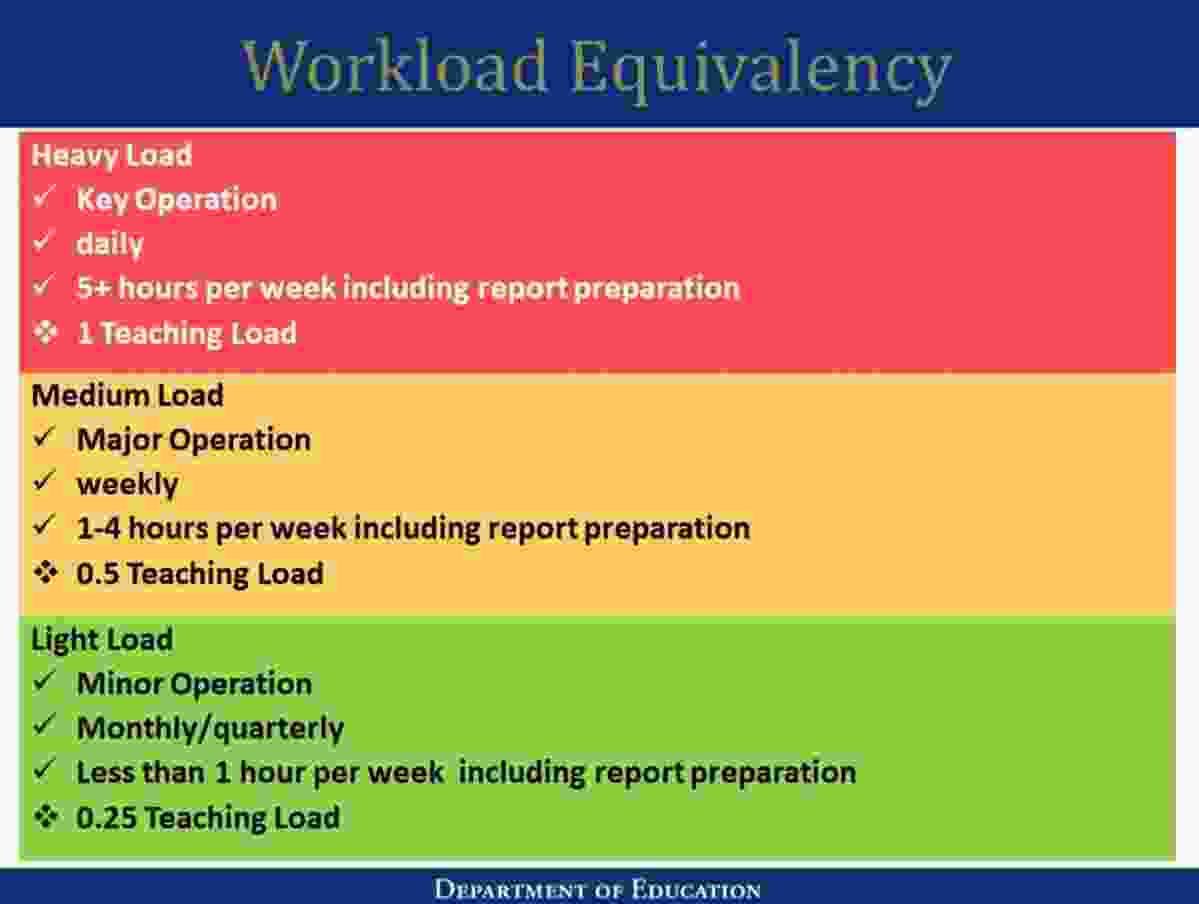Ancillary task for teachers and workload equivalency
As teachers, we all know that our responsibilities go beyond just teaching in the classroom. We are expected to take on various ancillary tasks that add to a significant workload. One of the most challenging roles is being a class adviser, a heavy task equivalent to one teaching load.
Class advisers ensure their students' well-being and academic success. They are responsible for monitoring attendance, behavior, and academic performance daily. They also serve as a liaison between the school and the parents, providing updates on their children's progress and addressing any concerns.
Aside from being a class adviser, there are other ancillary tasks that teachers may be assigned to. These tasks are categorized as heavy, medium, or light, depending on the frequency and duration of the task.
The heavy tasks include the feeding coordinator, canteen manager, guidance coordinator, ICT/LIS/EBEIS coordinator, health officer, sports coordinator, library custodian, and gulayan coordinator. They require daily involvement or at least five hours per week, equivalent to one teaching load.
Subject area coordinator/grade level coordinator, school paper adviser, scouting coordinator, DRRM coordinator, and YES-O coordinator fall under the medium category. These tasks require one to four hours of involvement per week, equivalent to 0.5 teaching load.
The light tasks are those that require monthly or quarterly involvement, equivalent to 0.25 teaching load. These include the Phil-IRI coordinator, 4Ps coordinator, SBM coordinator, child protection officer, GAD coordinator, property custodian, school facilities coordinator, learning resource coordinator, remedial class coordinator, SSG adviser, and WINS coordinator.
Workload Equivalency
Take note that coordinatorship roles are also considered ancillary tasks. However, they are typically assigned to teachers who have shown an exceptional understanding of the subject matter and leadership skills.
These ancillary tasks can be challenging, especially when they add to a significant workload. Prioritize and manage your time wisely to avoid burnout. As much as possible, delegate tasks to other teachers or seek help from students and parents.
Communication is also important in ensuring the success of these ancillary tasks. As class advisers, establish open communication lines with students and their parents. This way, you can address any concerns or issues promptly.
Being a classroom teacher is more than just teaching in the classroom. We have various ancillary tasks that we need to fulfill to ensure the success of our students. As much as possible, we have to manage our time wisely and seek help when needed. With proper communication and delegation, we can fulfill these tasks while still providing quality education to our students.
Reference:
Teacher Workload Policy Study
Office of the Director Planning Service
Teacher Workload Policy Study
Office of the Director Planning Service










No comments
Post a Comment